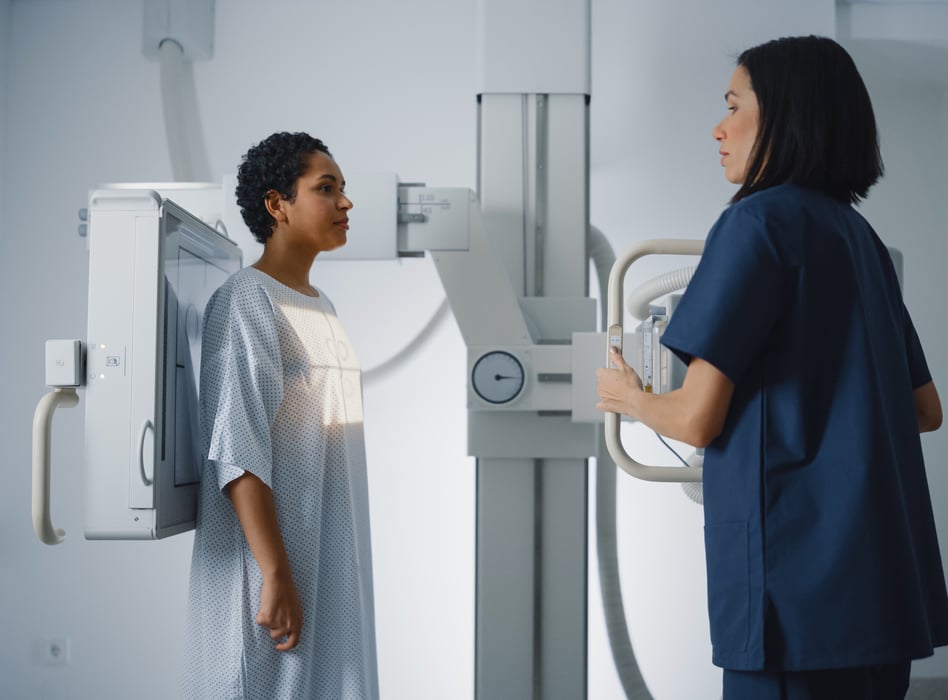Race-Adapted Starting Ages Suggested for Breast Cancer Screening

FRIDAY, April 21, 2023 (HealthDay News) -- In a report published online April 19 in JAMA Network Open, evidence-based race-adapted starting ages are suggested for breast cancer screening to address mortality due to early-onset disease.
Tianhui Chen, M.D., Ph.D., from Zhejiang Cancer Hospital in Hangzhou, China, and colleagues conducted a nationwide population-based cross-sectional study using data on breast cancer mortality in women in the United States. The analysis included 415,277 breast cancer-specific female deaths that occurred between 2011 and 2020.
The researchers found that breast cancer mortality was 27, 15, and 11 deaths per 100,000 person-years in Black; White; and American Indian or Alaska Native, Hispanic, and Asian or Pacific Islander women, respectively, for ages 40 to 49 years. When breast cancer screening was recommended to start at age 50 years for all women with a 10-year cumulative risk for breast cancer death of 0.329 percent, Black; White; American Indian or Alaska Native and Hispanic; and Asian or Pacific Islander women reached this threshold at 42, 51, 57, and 61 years, respectively. For a benchmark starting age of mass screening in the population at age 40 years and age 45 years, race and ethnicity-adapted starting ages were six and seven years earlier, respectively, for Black women.
"Health policy makers may consider the alternative, risk-adapted approach in which individuals, such as Black females, who are at high risk are screened earlier," the authors write.
Related Posts
Los estadounidenses de más de 50 quieren ‘envejecer en casa’, pero muchos no están preparados: encuesta
MIÉRCOLES, 13 de abril de 2022 (HealthDay News) -- La gran mayoría de los...
Las mujeres embarazadas de EE. UU. se enfrentan a unas mayores exposiciones a compuestos químicos
MARTES, 10 de mayo de 2022 (HealthDay News) -- La exposición a unos compuestos...
El número de estadounidenses que portan pistolas cargadas sigue en aumento
LUNES, 21 de noviembre de 2022 (HealthDay News) -- Es más probable que nunca que...
Depression Ups Odds for a Stroke
THURSDAY, March 9, 2023 (HealthDay News) -- In yet another example of the...
